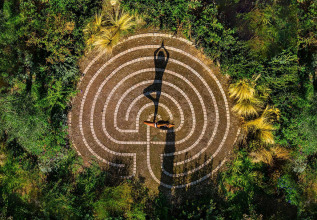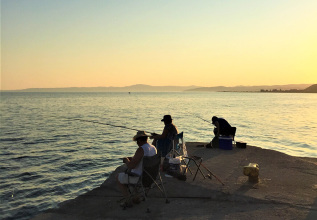2 MIN
TRAVEL TIPS
Spinalonga's proposition for Unesco’s World Heritage Sites

 In this context, the Municipality of Agios Nikolaos assigned to the composer Nikos Xydakis and the poet Dionysis Kapsalis to create an original artistic work which will be included in the nomination of the monument.
Source of inspiration is Spinalonga, an emblematical topos, a symbol of pain, isolation and martyrdom. At the same time this island highlightes the greatness of the human soul and Man’s struggle for survival.
In this context, the Municipality of Agios Nikolaos assigned to the composer Nikos Xydakis and the poet Dionysis Kapsalis to create an original artistic work which will be included in the nomination of the monument.
Source of inspiration is Spinalonga, an emblematical topos, a symbol of pain, isolation and martyrdom. At the same time this island highlightes the greatness of the human soul and Man’s struggle for survival.
 In this small and barren rock inhabited for centuries human communities with very different social and racial elements. From the 16th to the 20th century Spinalonga was a Venetian fortress, an Ottoman fortress and a settlement, and finally a place of exile for the lepers. Three times it was "evacuated" in a tragic way and was re-inhabited by people who had no common element with the previous ones.
The musical work of Nikos Xydakis, "Apokopos or Spinalonga", was created for two voices and a set of classical and traditional instruments, in which narrative parts alternate with lyrical and organic intermedia with songs.
The narrative canvas created by Dionysis Kapsalis follows the "katabasis to Adis (the land of the dead)" of a patient in Spinalonga, along with other stories, images and incidents from the lives of the incarcerated, and refferences at the same time to Epaminondas Remondakis’ Autobiography, the myth of Orpheus and Eurydice and Bergadi’s Apokopos.
A production of the Municipality of Agios Nikolaos, which takes place in collaboration with the Ministry of Culture, the Lassithi Ephorate of Antiquities and the support of the Region of Crete.
By: Ellen Rouben
In this small and barren rock inhabited for centuries human communities with very different social and racial elements. From the 16th to the 20th century Spinalonga was a Venetian fortress, an Ottoman fortress and a settlement, and finally a place of exile for the lepers. Three times it was "evacuated" in a tragic way and was re-inhabited by people who had no common element with the previous ones.
The musical work of Nikos Xydakis, "Apokopos or Spinalonga", was created for two voices and a set of classical and traditional instruments, in which narrative parts alternate with lyrical and organic intermedia with songs.
The narrative canvas created by Dionysis Kapsalis follows the "katabasis to Adis (the land of the dead)" of a patient in Spinalonga, along with other stories, images and incidents from the lives of the incarcerated, and refferences at the same time to Epaminondas Remondakis’ Autobiography, the myth of Orpheus and Eurydice and Bergadi’s Apokopos.
A production of the Municipality of Agios Nikolaos, which takes place in collaboration with the Ministry of Culture, the Lassithi Ephorate of Antiquities and the support of the Region of Crete.
By: Ellen Rouben


